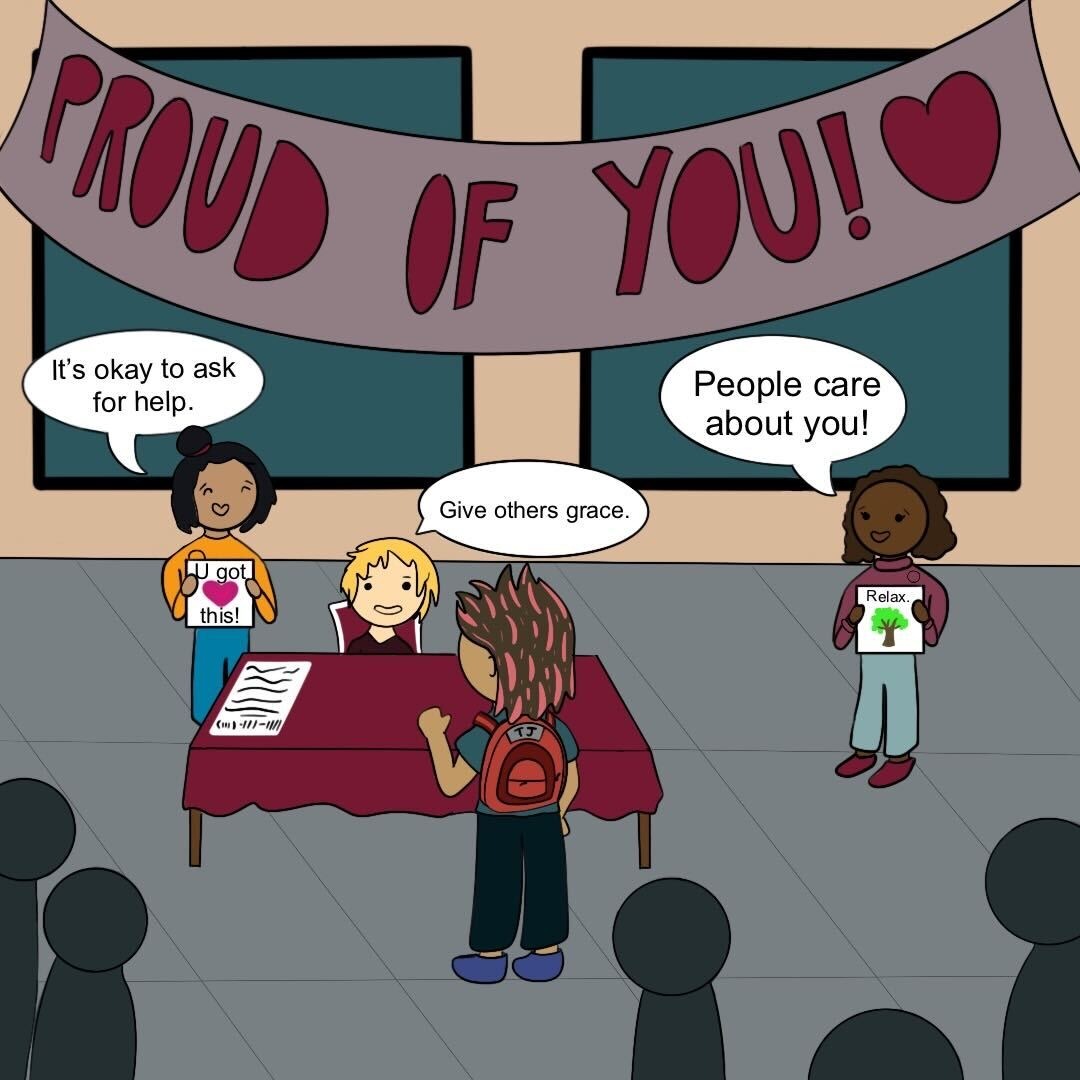The platform of a college campus is an ideal setting to challenge one’s preconceived notions and go to bat deep personal convictions. As young adults encounter foreign ideologies, they should feel inclined to change their mind regardless of previous notions or affiliations as it is warranted.
There is great importance in speaking one’s mind boldly and without conformity to the audience at hand. This vocalization vulnerably lays a perspective down, exposing protected thoughts of the mind to the bitter cold of public response. The structural integrity of a perspective is tested.
It is a sure thing that someone among the upwards of 30,000 students will have an opposing opinion to offer. The difficulty in exposing the inner workings of the brain is not finding opposition but finding something valuable in the argumentation. This means being open to the concept that sometimes the opposition may have more merit than the original opinion in and of itself. It only makes sense to concede and have a change of heart.
In other words, people get it wrong sometimes. Humanity is susceptible to that sort of thing—faulty thinking. However, if one does not openly express their worldview, they may never discover how corrupt it really is. As a college student, it is okay to change your mind.
Ralph Waldo Emerson, a famous existentialist of the 1800s wrote in his essay titled, “Self-Reliance” to “speak what you think today in hard words and tomorrow speak what tomorrow thinks in hard words again, though it contradicts everything you said today.”
He is advocating what modern society might call fickle or hypocritical—inconsistency in one’s word and action. It seems absurd at first.
Emerson emphasizes the ridiculous obligation humanity feels toward the words and actions they have previously subscribed to. He rags on consistency for the sake of consistency in a blatant manner.
The perspective Emerson is coming from is of individuals being entrapped in the perception they have of themselves, as well as the perceptions others have of them. When the skewness of their core is unearthed, they remain faithful to the philosophies they know to be riddled with error.
What it all comes down to is pride. People get so caught up in their own pride they cannot bear admitting they were wrong, so they continue running down their path fully aware they are going in the wrong direction. Even worse, they seal their eyes and ears up tightly to not bear to even check if they might possibly have been misinterpreting the data. Instead, they reside in blind and vocal ignorance.
Getting lost in one’s own pride in an argument is a tragedy for everyone involved. The people listening disregard any statements by the overzealous speaker as one-sided and narrow-minded. The speaker himself has squandered away his receptiveness to any insightful perspectives of his adversary.
Thomas Merton, a great thinker of the 1900s, writes in his book “No Man is an Island,” the words “why do we get angry about what we believe? Because we do not really believe it. Or else what we pretend to be defending as the ‘truth’ is really our own self-esteem.”
Merton goes on to say “truth is the life of our intelligence. The mind does not fully live unless it thinks straight.”
So be fickle—because if the structure of one’s worldview is not sound, the next best move is to rebuild its structure so that it is something worth standing on. For the young adult, there is a lot of building ahead and a solid foundation is crucial.
-Elizabeth Harper is a wildlife biology sophomore
Opinion: Fickle is not a bad thing
February 17, 2020
0
Donate to The University Star
Your donation will support the student journalists of Texas State University. Your contribution will allow us to purchase equipment and cover our annual website hosting costs.
More to Discover











